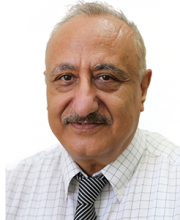You are here
Purpose of life
Mar 12,2023 - Last updated at Mar 12,2023
The purpose of life is a philosophical question that has puzzled humanity for millenniums. It is a problematic question that has been explored by many great thinkers, philosophers, psychologists and theologians over the developing human civilisation. The purpose of this article is to shed some light over some of these perspectives.
Firstly, the existentialist perspective posits that the purpose of life is to find meaning in our existence. Existentialists believe that humans are fundamentally free beings, and that they must create their own meaning in life. This perspective is exemplified by Jean-Paul Sartre, who stated that "existence precedes essence", meaning that we are not born with an inherent purpose or meaning, but must create it ourselves through our choices and actions. In other words, human beings are not born with a pre-existing essence or fixed nature that determines who they are or what they should do. Rather, individuals must actively create their own essence or nature through their personal and free choices and actions in life. Gabriel Marcel, as an existentialist, emphasised the need for individuals to find meaning through their connections with others.
Secondly, teleological perspectives suggest that the purpose of life is to achieve a particular goal or end. That is often associated with the idea of a grand plan or design for the universe, in which each living being has a specific role to play in fulfilling a higher purpose. One of the most famous teleological perspectives on the purpose of life is the idea of a "good life”, which has its roots in ancient Greek philosophy. According to this perspective, the purpose of life is to achieve happiness, which is considered the ultimate goal of human existence. However, happiness is not seen as a short term emotion, but rather as a long-term state of being that is achieved through a life of virtue, wisdom, kindness, fairness, empathy and the pursuit of knowledge.
Another teleological perspective on the purpose of life is found in religious traditions, which often suggest that the purpose of life is to serve and worship a divine being or to fulfill a specific spiritual mission, such as in monolithic religions, as the purpose of life is often conceived as glorifying God and obeying his laws, while in Hinduism, the purpose of life is to achieve liberation from the cycle of birth, death, and rebirth (samsara) through spiritual enlightenment reaching a state of “moksha”. In Buddhism the purpose of life is reaching the state of Nirvana that entails liberation, peace and enlightenment.
In addition to these perspectives, some teleological theories suggest that the purpose of life is to contribute to the greater good of society and to promote the advancement of humanity in general. From this perspective, individuals are seen as playing a vital role in the progress of civilization, and thus the purpose of life is to use one's talents and abilities to make a positive impact on the world as a whole.
Thirdly, Hedonism is a philosophical perspective that emphasises pleasure as the ultimate goal or purpose in life. It can be achieved by maximising pleasure and minimising pain. There are several different versions of hedonism, but they all share the basic idea that pleasure is the ultimate good and pain is the ultimate evil. However, one of the main criticisms of hedonism is that it can be difficult to determine what constitutes true pleasure. Some pleasures may be short-lived and lead to long-term pain or harm, while other activities that are initially unpleasant may lead to greater pleasure in the long run. Another criticism of hedonism is that it can lead to selfish behavior, as hedonists may prioritise their own pleasure over the well-being of others, which can lead to biases, conflicts and social problems.
Finally, the humanistic perspective on the purpose of life emphasises the idea that individuals have the freedom to create their own purpose and meaning in life through pursuing personal growth and development, to become the best version of oneself through embracing one's unique talents and abilities, striving for self-improvement, and living a fulfilling life. Humanists, such as Abraham Maslow and Carl Rogers, believe that individuals have an innate drive to reach their full potential, which they referred to as self-actualisation. But Maslow outlines a series of human needs that must be fulfilled first in order to reach self-actualisation, such as food, shelter, and safety. However both psychologists emphasise the importance of personal relationships as well as the connections with others in achieving a fulfilling life, and see the purpose of life as promoting human flourishing, which involves developing the full range of human capacities, such as creativity, empathy, and intellectual curiosity. This also requires creating social, political, and economic conditions that allow all individuals to reach their full potential towards making the society better, such as promoting social justice, environmental sustainability and human rights.
In conclusion, the purpose of life may be different for each individual, and it is up to each of us to determine what brings us the most meaning, fulfillment, and purpose in life. Humanists believe that individuals thrive in environments where they feel free, valued, supported, and connected to others. It is therefore important that you live in the right environment if you ever wanted to fulfill your purpose in life.













